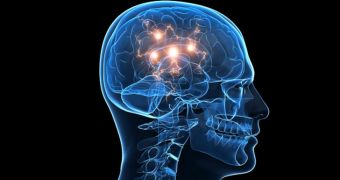Scientists with the University of British Columbia in Canada claim to have come up with an explanation for why it is that some people have trouble learning new things and adapting to changes in their surroundings.
In a paper published in the journal Proceedings of the National Academy of Science this past May 26, the researchers detail that, according to their investigations into the matter at hand, the problem might boil down to so-called sticky synapses.
As detailed by Medical Express, memories are the result of nerve cells' entering strong synaptic connections with one another. Should these connections be too strong, old memories become hard-wired in the brain and the learning ability takes a hit.
While carrying out a series of experiments on mice, the University of British Columbia specialists have found that rodents whose brains contained a tad too much beta-catenin were able to learn a new task, but failed to properly adapt when the task was altered.
Previous studies showed beta-catenin to be part and parcel of the so-called molecular glue that creates and maintains synapses. Hence, it was concluded that too much of this protein makes synaptic connections too strong and inhibits learning.
“Increased levels of beta-catenin have previously been reported in disorders such as Alzheimer's disease and Huntington's disease, and, intriguingly, patients with these diseases have been shown to have deficits in cognitive flexibility similar to those we observed in this study” says Shernaz Bamji.
“Now, we see that changes in beta-catenin levels can dramatically affect learning and memory, and may indeed play a role in the cognitive deficits associated with these diseases,” the specialist further comments on the outcome of these experiments.
Despite the fact that the investigation was carried out on mice, the scientists behind it expect that their findings also hold true in the case of human patients and might explain why it is that certain individuals vividly remember certain things but have trouble learning new ones.
Thus, specialist Shernaz Bamji and her colleagues believe that, by having a negative impact on cognitive flexibility, such sticky synapses hinder learning and adaptability. Simply put, they make it more difficult to alter a behavior in such ways as to meet the demands of new circumstances.
“We tend to think that strong retention of memories is always a good thing. But our study shows that cognitive flexibility involves actively weakening old memory traces. In certain situations, you have to be able to forget to learn,” stresses study first author Fergil Mills with the University of British Columbia.

 14 DAY TRIAL //
14 DAY TRIAL //